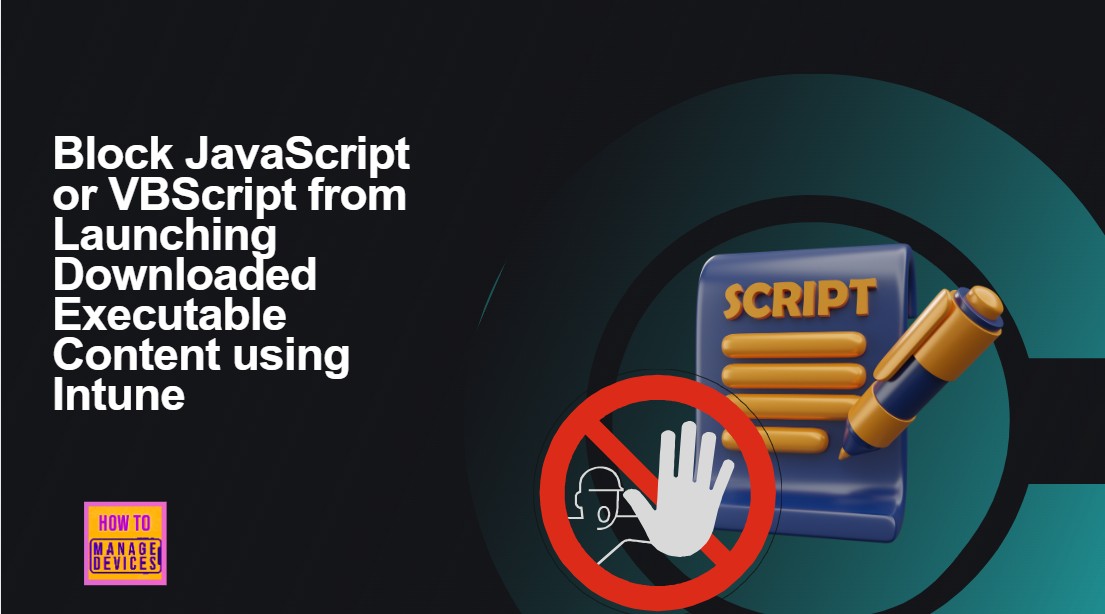How to Block JavaScript or VBScript from Launching Downloaded Executable Content using Intune. This policy is designed to strengthen endpoint protection by blocking scripts from executing potentially harmful downloaded content.
JavaScript and VBScript are used to automate processes and manage routine system operations. However, cybercriminals can take advantage of these same scripting capabilities to execute harmful commands, manipulate system behavior, or distribute malware across devices.
When people try to download files from the internet, some scripts can start running on their computers automatically without them knowing or allowing it. This can make the computer unsafe and increase the chance of getting infected with malware.
In this post, you will learn how this rule works, why it is important for protecting endpoints from malware, and what end users can expect once it is applied. By the end of this post, you will have all the details needed to block these potentially dangerous scripts and enhance your organization’s security posture.
Table of Contents
How to Block JavaScript or VBScript from Launching Downloaded Executable Content using Intune
This policy helps IT admins by preventing scripts like JavaScript or VBScript from automatically running downloaded executable files. By enforcing this rule through Intune, admins can reduce the risk of malware infections across all managed devices, ensuring consistent security.
- First sign in to the Microsoft Intune Admin Portal with your credentials.
- Then navigate to Endpoint security > Attack surface reduction > Create Policy to begin configuring the necessary security settings.
| Platform | Profile |
|---|---|
| Windows | Attack Surface Reduction Rules |
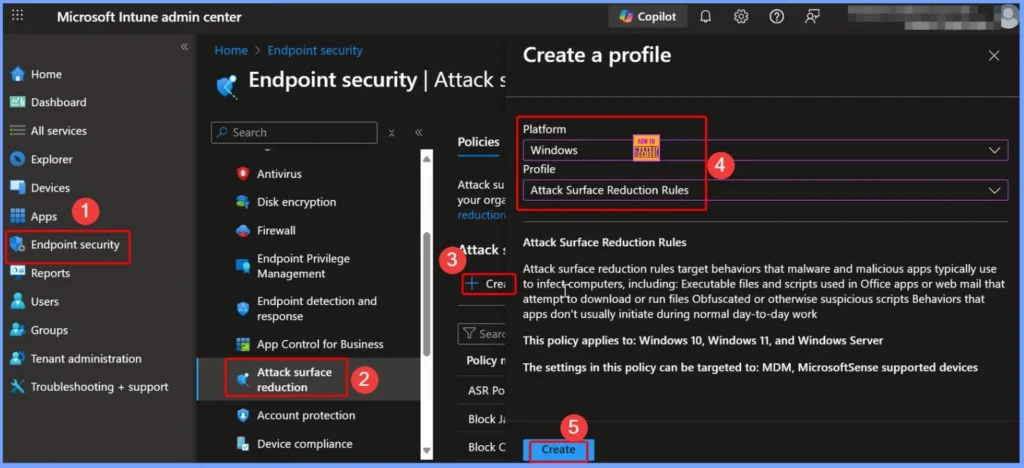
- Limit Local Account Blank Password Use to Console Logon Using Intune Policy
- Do not Delete Temp Folders upon Exit Security Policy using Intune
- Block Executable Files with Prevalence Age or Trusted List Criteria using Intune ASR Rules
Basics Tab Settings in Intune for Blocking Scripts
When creating the policy in Intune, the Basics tab is where you provide the essential details for the configuration. For the Name field, you should enter: “Block JavaScript or VBScript from launching downloaded executable content”. This clearly identifies the purpose of the policy for anyone managing Intune.
- In the Description field, you can add “Block JavaScript or VBScript from launching downloaded executable content using Intune.”
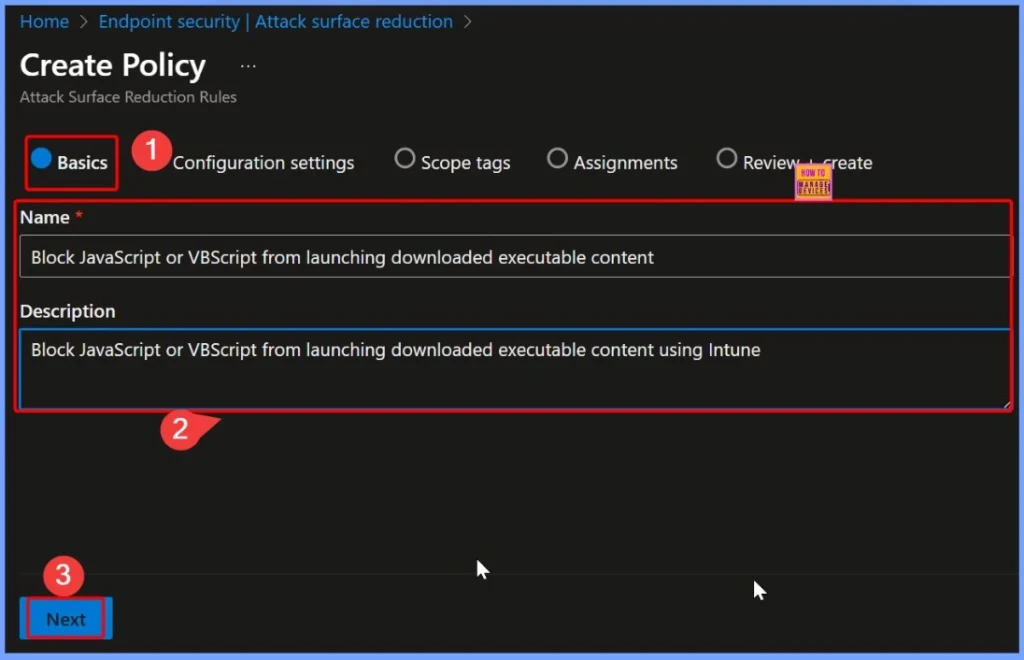
Default and Available Settings for the Policy
This policy in Intune is Off by default; it does not take effect until explicitly configured. When setting up this policy, you have 4 options to choose from. They are as follows. These settings give IT admins flexibility to enforce security according to organisational needs.
- Not configured – The policy is inactive and does not enforce any restrictions.
- Block – Prevents scripts from launching downloaded executable files, providing full protection.
- Audit – Allows scripts to run but logs the activity for monitoring and analysis.
- Warn – Displays a warning to the user before a script attempts to run a downloaded executable.
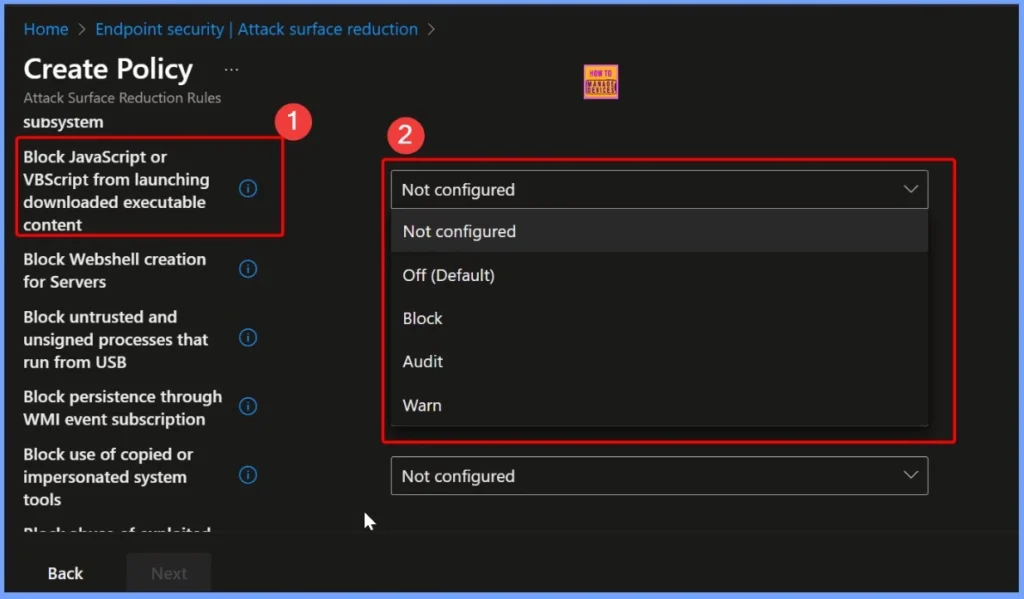
Selecting the Audit Option for the Policy
When we set the policy to Audit Mode, scripts are allowed to run, but all attempts to launch downloaded executable files are logged. This helps IT admins observe potential risks, analyze script behavior, and gather data on possible threats before enforcing a full block.
| Policy Name | Selected Settings |
|---|---|
| Block JavaScript or VBScript from launching downloaded executable content | Audit |
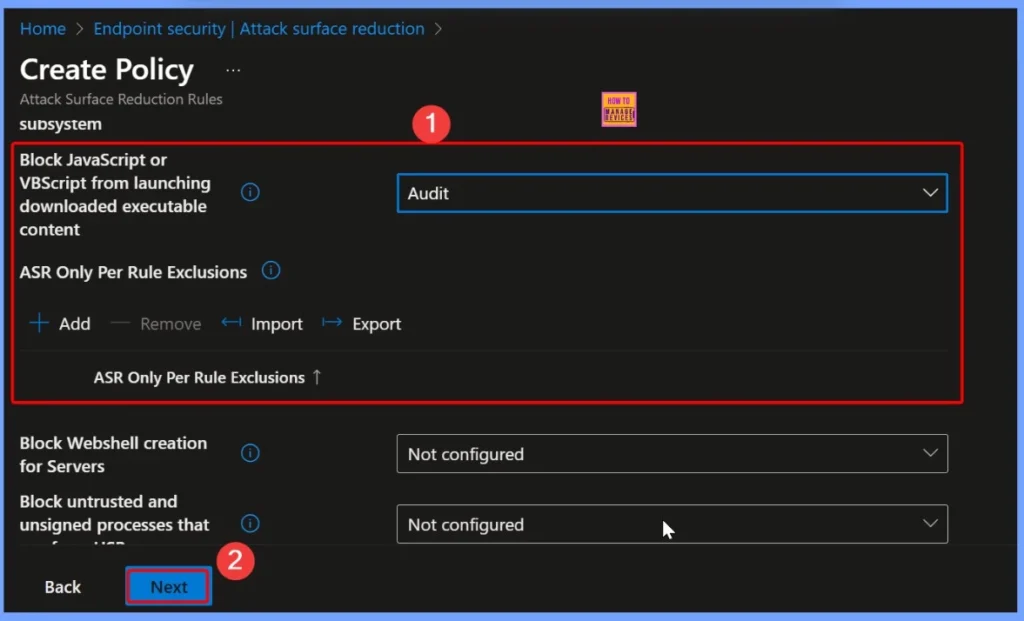
- Configure Attack Surface Reduction ASR Rules in Intune
- What is Microsoft Defender XDR?
- Microsoft Defender ASR Rules to Block Rebooting Machine in Safe Mode
- MDE Microsoft Defender for Endpoint Telemetry Issues
Scope Tag for the Policy
When configuring the “Block JavaScript or VBScript from launching downloaded executable content” policy in Intune, you can assign a Scope Tag to help organize and manage the policy within your environment.
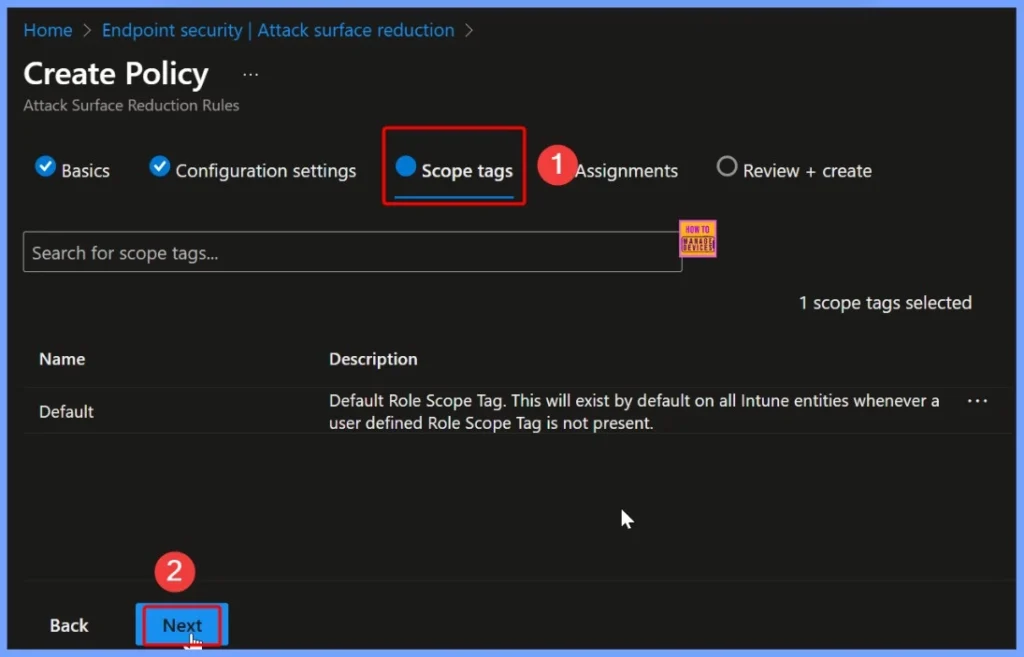
Assignments for the Policy
In Intune, the “Block JavaScript or VBScript from launching downloaded executable content” policy needs to be assigned to specific devices to take effect. During the Assignments step, IT admins select the target users, devices, or groups that should receive the policy.
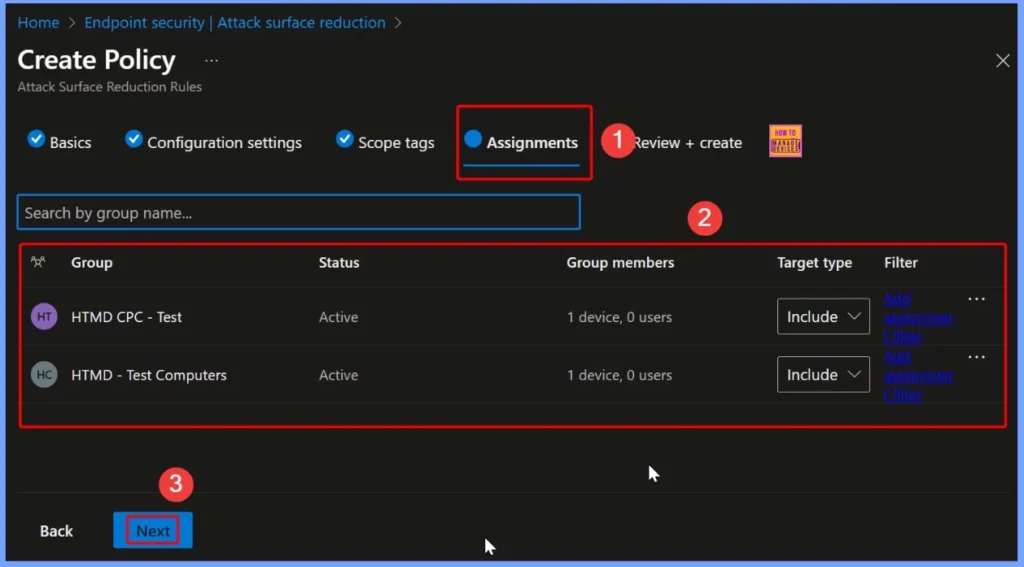
Review and Create the Policy
After configuring all the settings for the “Block JavaScript or VBScript from launching downloaded executable content” policy in Intune, the final step is to review and create it. During this step, IT admins should carefully check all details, including the Basics, Settings, Scope Tags, and Assignments, to ensure everything is correct.
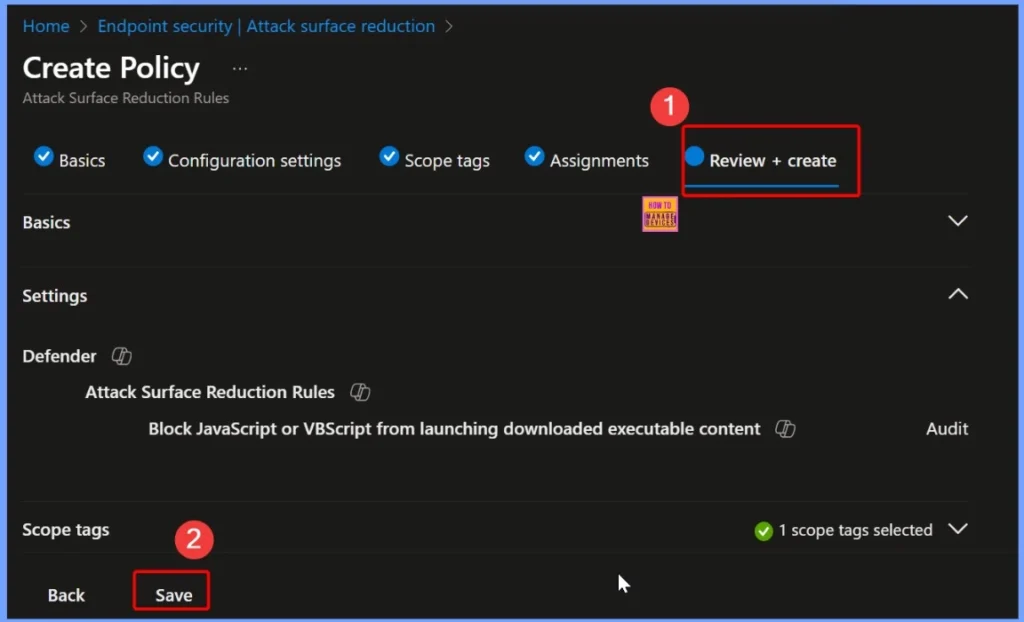
Notifications After Creating the Policy
After clicking the Create button in Intune, you will receive two notifications confirming the deployment of the policy. The first notification indicates that the group assignments for the “Block JavaScript or VBScript from launching downloaded executable content” policy have been successfully saved. The second notification confirms that the policy itself has been successfully created.
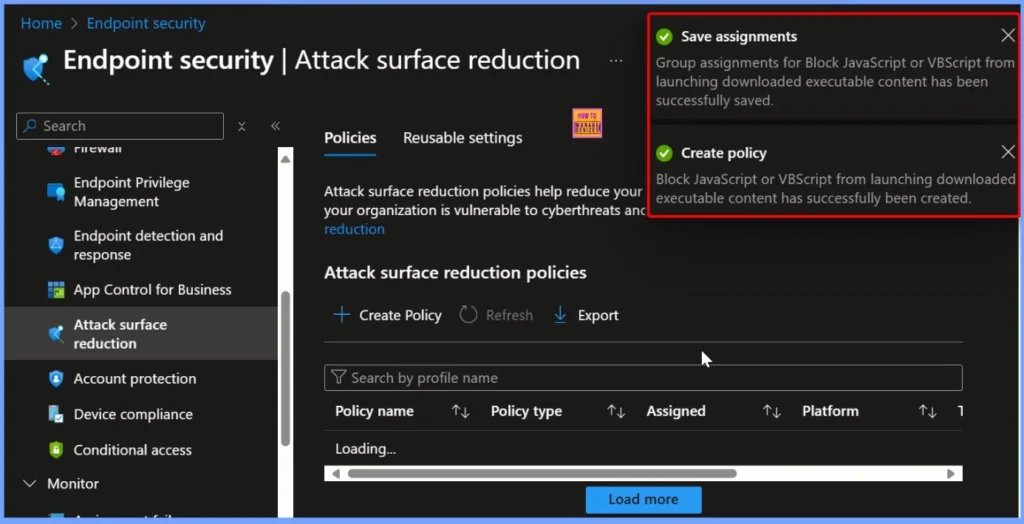
Device and User Check in Status
After deploying the “Block JavaScript or VBScript from launching downloaded executable content” policy, the device and user check-in status provides a summary of its application. In this case, the status shows: Succeeded: 2, Error: 0, Conflict: 0, Not applicable: 0, and In progress: 0.
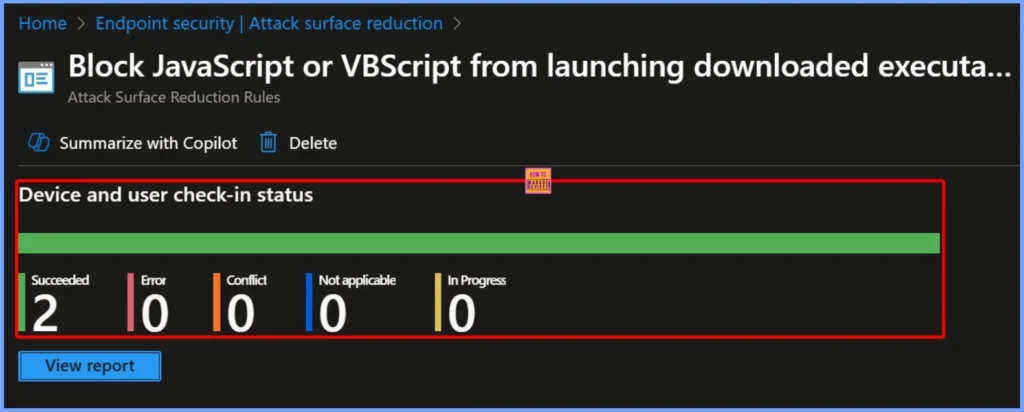
Client Side Verification
Checking the Event Log at the path Applications and Services Logs → Microsoft → Windows → DeviceManagement-Enterprise-Diagnostics-Provider → Admin provides IT admins with a detailed record of how the policy is being applied on devices.
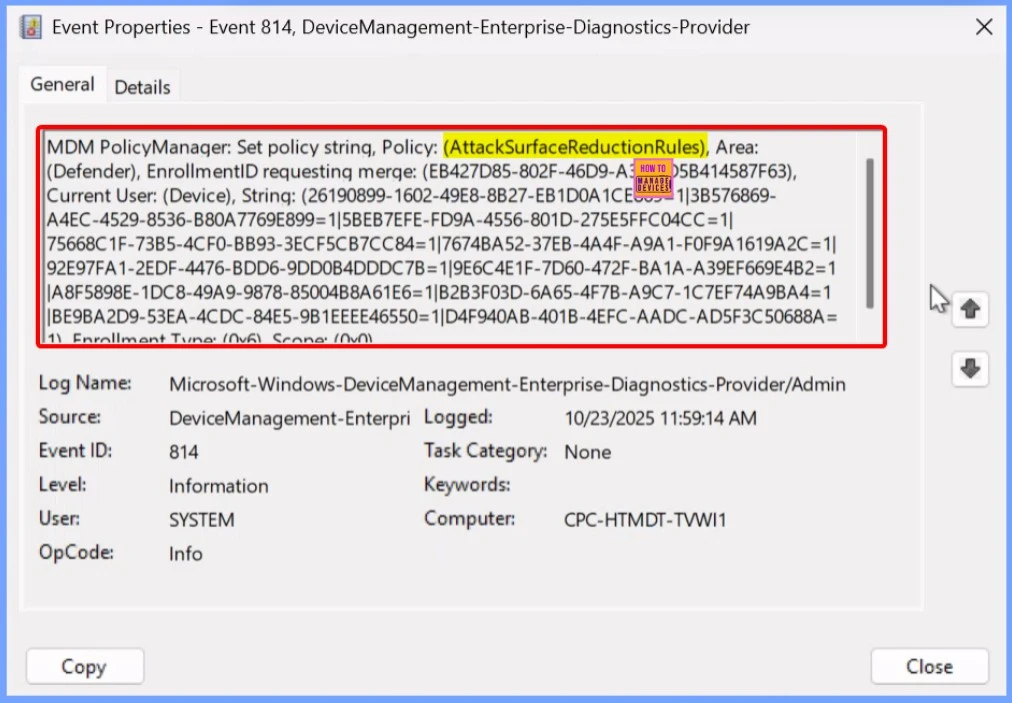
Need Further Assistance or Have Technical Questions?
Join the LinkedIn Page and Telegram group to get the latest step-by-step guides and news updates. Join our Meetup Page to participate in User group meetings. Also, Join the WhatsApp Community to get the latest news on Microsoft Technologies. We are there on Reddit as well
Author
Anoop C Nair has been Microsoft MVP from 2015 onwards for 10 consecutive years! He is a Workplace Solution Architect with more than 22+ years of experience in Workplace technologies. He is also a Blogger, Speaker, and Local User Group Community leader. His primary focus is on Device Management technologies like SCCM and Intune. He writes about technologies like Intune, SCCM, Windows, Cloud PC, Windows, Entra, Microsoft Security, Career, etc

